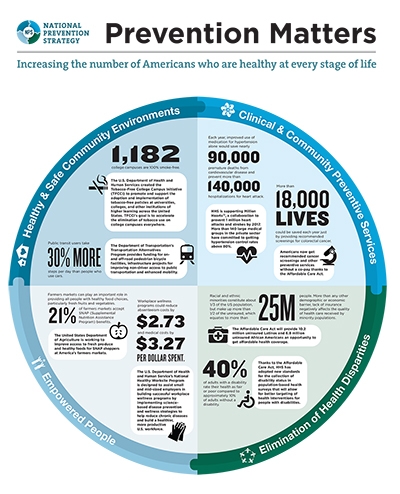Champions of Change Blog
Building an Inclusive Community… One Person at a Time
Posted by on September 19, 2013 at 2:17 PM EST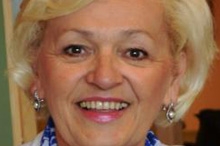
Fatima Said is being honored as a Champion of Change for working tirelessly to effectively integrate immigrants civically, linguistically, and socially into the fabric of their neighborhoods.
When we hear the word inclusive, many different thoughts come to mind such as togetherness, respect and tolerance. What comes to my mind is investment, as in making a conscious effort to invest in the lives of others. This concept of spreading human kindness and respect plays a key role in my professional and personal life.
As a young woman, I had a good life. My family and I were happy, healthy and relatively safe in our home in Bosnia and Herzegovina. This all changed in the early 1990’s when war broke out in our country and we were forced to leave our home. Fortunately, all of my family members survived and were able to reach safety in other countries. This was when I became a refugee. During our first several months in camp, we were fighting to survive, living a day at a time. After a while, things improved when camp staff began to see the value of investing in us. We were given space to start a school and this helped us to create a more ‘normal’ life, which instilled in us a hope for the future.
When I arrived in Rochester, MN on December 9, 1993, I was amazed at the generosity and kindness of my new community. We were greeted at the airport by a group of people, all new to us. They welcomed us with open arms and invested so much of their time and love into me and my family. It is absolutely impossible to describe how their kindness helped us; it was so motivating to have friends and supporters when we first arrived. Their influence encouraged us to work harder to achieve our dreams and give back to the community.
I am thankful when I think of those individuals today and proud that I am once again in the position to invest in others through my role as Executive Director at Project FINE. We are a small nonprofit organization located in Winona, MN with a huge and powerful mission: to strengthen and enrich our community by facilitating the integration of people who are ethnically diverse. Each day our staff, board, and community partners are working to build inclusion and invest in the lives of newcomers in our region.
We do this in many ways – through educational programming, language services, diversity training, partnership building and community involvement. All of these activities build upon the importance of investing in others and an understanding of the power of goodwill and human kindness. Immigrants and refugees come to our neighborhoods, communities and nation for many reasons, but we all have hopes and dreams and deserve to be respected and have the opportunity to build a better life.
While not everyone has the same background or opportunity as I do, you can still take part in building an inclusive community. Start by being open-minded and look for opportunities to interact with others. Listen to the stories of newcomers in your community and make an effort to get to know them. We all have different cultures, histories and stories and our personal and collective lives benefit greatly from investing in others. I encourage you to think about how you can invest in others – together, our efforts help create a stronger, more inclusive community and country.
Fatima Said is Executive Director of Project FINE (Focus on Integrating Newcomers through Education), a nonprofit organization dedicated to serving immigrants and refugees in Winona, MN and the surrounding area.
Learn more about ImmigrationWhen We Welcome New Americans, We All Benefit
Posted by on September 19, 2013 at 2:13 PM EST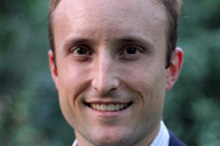
Dan Rearick is being honored as a Champion of Change for working tirelessly to effectively integrate immigrants civically, linguistically, and socially into the fabric of their neighborhoods.
A few months back, I spent a morning volunteering at a local community farm. Uniting NC organized the event as part of a program for longtime residents and recent immigrants to work together serving their communities. As usual, new North Carolinians from all over the world joined us. We had volunteers from Cuba, Sudan, Burma, Mexico, Peru, Argentina and Iran.
As we finished our morning of picking greens for the local food bank, I talked to a family from Cuba—a father, mother and their son. Immediately, the father and mother told me, teary-eyed, how thankful they were to be here in a country of freedom and opportunity. I soon understood why they were so emotional when they explained this was their first week in the United States.
Even with all that this family had to do to settle into a new country, a new home and their son’s new school, they were spending the day giving back. “We came to make a better life for ourselves,” the mother told me. “But we are so thankful, and we also want to do what we can to make a better life for others.”
Generations of immigrants made our country what it is today. Most new immigrants come to our country with an American Dream that goes beyond just getting a better job. It includes joining a community who, like the family from Cuba, is open to meeting new neighbors and goes out of its way to help.
Sadly, we have a history of amnesia—with each new generation forgetting what their families went through. Even though we all know how hard it is to meet new neighbors, new classmates and new co-workers, we often shut out newcomers and make their arrival even more of an uphill struggle than it already is. But it doesn’t have to be that way.
We have untapped potential in this country. When you’re in a place where people welcome you and show you the ropes, you’re energized and share your own ideas. In neighborhoods, sharing begets sharing. Some of us are fortunate enough to live in neighborhoods where everyone knows each other’s name, and neighbors share their tools and their favorite recipes.
This is what Uniting NC is trying to build. We know immigrants want to meet their new neighbors and give back to their communities, so we develop programs like the community volunteer days. Another program we started helps parents meet other parents and better understand their children’s schoolwork. School by school, town by town, these are the types of programs that help new American families reach their full potential and benefit our entire communities.
Fifty years from now, Americans will still live in a country that immigrants help make great. After all, immigrants are—by definition—willing to dream big and to leave everything behind to make a better life. We as a nation will have to ask ourselves if we helped our own country prosper by treating people right along the way. Did we help them help us make our country even better? Will the children of immigrants win even more Nobel Prizes than they did in the last half century? Will new Americans make even more music that wins Grammys and makes us dance? Will they continue an amazing track record of starting successful businesses and creating jobs? They will, if we welcome them.
Dan Rearick is the Executive Director of Uniting NC, a non-profit dedicated to building communities that actively welcome new immigrants, so that together we can build an even more innovative, prosperous and culturally-rich society.
Learn more about ImmigrationMomentum Builds in Michigan into a Chorus of Welcoming
Posted by on September 19, 2013 at 2:02 PM EST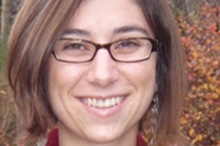
Christine Sauvé is being honored as a Champion of Change for working tirelessly to effectively integrate immigrants civically, linguistically, and socially into the fabric of their neighborhoods.
Welcoming Michigan is one of the twenty-two Welcoming America affiliates’ which organizes activities and uses positive messages to highlight the shared values and contributions of immigrants. Whether you emigrated from Mexico, your grandparents migrated from the southern U.S., your great grandparents came from Poland, or your Anishinaabe ancestors traveled here from Canada, everyone has a migration or immigration story to tell.
I come to this work as the granddaughter and great granddaughter of immigrants and can appreciate the sacrifices and hard work of my immigrant neighbors. As a Peace Corps volunteer, I saw first-hand the challenges faced by those wanting to move to America to make a better life for themselves and their families. In my travels I have been a stranger dependent on the kindness of others. I am also a community organizer and believe that good things happen when you bring people together.
At Welcoming Michigan I work with local communities to help U.S. and foreign-born residents get to know each other, share stories, and develop mutual respect and understanding. This immigrant integration initiative grew out of the 2010 Global Detroit study and is now a project of the Michigan Immigrant Rights Center. Since launching in 2012, we have posted five billboards, facilitated four welcoming committees with over 50 members, and hosted more than 60 events that have reached over 3,000 attendees.
We couldn’t have done this without the active participation of dedicated volunteers or “Welcoming Committees,” made up of leaders from community organizations, faith groups, schools, businesses, law enforcement, and city government to organize activities to connect longtime and new residents. Community members engage in dialogue at film screenings, cooking classes, and multicultural celebrations. Committee members set a positive tone in their communities by promoting and modeling inclusivity.
In Detroit I work with community leaders who bring neighbors together through a TimeBank, an Arab community center, and a youth advocacy network. I know young Yemeni immigrants who are always willing to lend a helping hand and build bridges across race and ethnicity. I know African American residents who enjoy meeting their Mexican neighbors at community cooking classes. In Sterling Heights and Macomb County I work with dedicated and forward-thinking city and county staff, refugee resettlement agencies, and members of the business community. In Hamtramck, religious leaders, librarians, and public safety officers care about making their community a welcoming and harmonious one. In southwest Michigan, my colleague works with school board members, migrant farmworkers, and small town residents willing to share stories of welcoming and migration.
In addition to a Welcoming Week proclamation from our Governor, seven Michigan communities have issued resolutions encouraging longtime residents to join with immigrant neighbors in a spirit of unity. We frequently receive requests from folks excited about welcoming newcomers and wanting to get involved. It is heartening to hear so many voices from our Great Lakes State joining in a chorus of “Welcome,” “Marhaba,” and “Bienvenidos”.
Christine Sauvé is the Southeast Communities Coordinator for Welcoming Michigan, a grassroots immigrant integration initiative of the Michigan Immigrant Rights Center.
Learn more about ImmigrationMore Affordable Healthcare through a Healthier America
Posted by on September 17, 2013 at 3:19 PM ESTLast week, the White House honored eight Champions of Change, who are leading extraordinary initiatives in their communities to promote healthier lifestyles through Prevention and Public Health. These leaders are helping communities focus on healthy living by expanding preventative screenings, reducing health disparities, and promoting valuable ideas like healthy eating and exercise. They are reducing the cost of healthcare for Americans by helping them live healthier and happier lives.
These public health leaders have made healthcare a priority. Elmer Huerta realized he needed to do more on health education after treating patients for preventable diseases that could be detected early on. Janine Janosky and her colleagues focused their efforts on tackling chronic diseases like diabetes through an integrated health and wellness model. (Read more about the Champions and their work in their blogs)
Providing Americans with access to quality and affordable health coverage has been a priority for the President. The implementation of the Affordable Care Act, called for the creation of the National Prevention Strategy to fund public health initiatives, including ones led by some of these Champions, moving our nation’s focus from sickness and disease to wellness and prevention. Secretary Sebelius points out in her blog that the Affordable Care Act ensures that every American has the opportunity to be healthy by investing in public health – something that affects and connects us all.
However, those who work in public health know that making healthcare available is not enough – just as setting up screening facilities, accessible clinics, bike racks and surveillance programs is not enough. What makes these effective, is health education. A community must understand the options available to them and how these options relate to their personal health and what they can afford.
On October 1st, Americans will want to know more about the new Marketplace, how to enroll and what their options are. Spread the word on getting enrolled in your communities by:
Join the conversation:
- Learn more at marketplace.cms.gov
- Get email updates at Healthcare.gov/subscribe
- Follow us on Twitter @HealthCareGov
Share informational graphics on the Affordable Care Act with your members, networks and communities
Direct people to the official consumer resources to learn about the Marketplace and get coverage and post it on your website:
- HealthCare.gov
- CuidadoDeSalud.gov
- The 24/7 Consumer Call Center: 1-800-318-2596
Learn more about Health CareImproving the Public’s Health through the Affordable Care Act
Posted by on September 13, 2013 at 11:05 AM ESTEd. Note: This blog post was originally published by HHS.
With the leadership of our partners in prevention and public health and with implementation of the Affordable Care Act, the Obama Administration is helping to ensure every American has the opportunity to be healthy because we know that the nation’s public health affects and connects us all.
Yesterday, the White House highlighted the importance of prevention and public health, recognizing local leaders, also known as Champions of Change, from across the country. Eight Champions of Change shared their incredible work, which in many cases are supported through the Prevention and Public Health (PPHF), an important component of the Affordable Care Act. These eight Champions were selected from over 900 nominations, higher than any other Champions event and a testament to the important work in prevention and public health happening across the country. They talked about how, through encouraging preventive screenings, reducing health disparities, promoting physical activity and healthy eating, and fighting health care acquired infections, public health and prevention efforts are building healthier communities for all Americans.
I congratulate these eight Champions and celebrate the work of all our partners in prevention and public health across the country:
-
Janine E. Janosky, Vice President for the Center for Community Health Improvement
Akron, OH -
Erica Washington, Healthcare-Associated Infections Coordinator
New Orleans, LA -
Andrea Hays, Director of the move∙ment Initiative & Upgrade Campaign
Evansville, IN -
Marion Kainer, MD MPH, Physician and Epidemiologist
Nashville, TN -
Natalie Pawlenko, Director, Office of Local Public Health, NJ Department of Health
Trenton, NJ -
Myriam Escobar, Community Outreach Worker at Moffitt Cancer Center
Tampa, FL -
Ira Combs, Community Liaison Nurse Coordinator at University of Nebraska Medical Center
Omaha, NE -
Elmer Huerta, Director of the Cancer Preventorium at MedStar Washington Hospital Center
Washington, DC
President Obama and the entire Obama Administration have made prevention and public health a top priority because of the lasting effects they have on the health of Americans.
That is why the Affordable Care Act provides unprecedented resources through the Prevention and Public Health Fund to support community-based strategies to prevent chronic diseases, and to improve public health. The Affordable Care Act also created the National Prevention, Health Promotion, and Public Health Council, which provides federal leadership to engage states, communities, and private partners in creating a healthier America through the recommendations of the National Prevention Strategy – a blueprint for ensuring Americans are healthy at every stage of life. The Prevention and Public Health Fund is supporting projects that help our health care system shift from a focus on sickness and disease to one based on wellness and prevention.
Also at the event, some important news about the 2012 TIPS from Former Smokers campaign, work made possible by the Prevention and Public Health Fund, was announced. As a result of our first federally supported national tobacco education campaign, more than 100,000 people have quit smoking long-term. This doubled even our most ambitious goals for the campaign—a three-month ad campaign that will make a lifetime of difference for these families.
And our efforts in public health to support healthy communities are only strengthened by better opportunities for coverage for more Americans. For example, we now have the opportunity to connect our public health messaging on tobacco use prevention with the coverage of tobacco screening and cessation services through the new preventive benefits in the Affordable Care Act. Now, we can not only drive traffic to quitlines, but also know that those ready to quit have access to free cessation services in new health plans. The same is true for many of our diabetes, cancer and other key prevention and public health education initiatives.
In addition to the celebration, on Monday, we hosted national, state and local individuals to engage in a conversation about the role of public health in the future as the implementation of the Affordable Care Act continues and the Health Insurance Marketplaces go live on October 1, more states decide to expand Medicaid and the health care landscape continues to evolve. In both discussions, it was clear that in order to achieve our goals of improving the nation’s health, our greatest resources are our public health and prevention leaders. Improving the health of Americans requires thousands of dedicated workers who work selflessly and tirelessly in small and large communities across our nation. With a collective spirit, these local agents of change take innovative approaches and solutions to address local health issues—work that we know makes a difference.
Together, public health efforts and greater insurance coverage will help us accelerate efforts to improve nation’s health.
And the opportunities to improve the nation’s health will only get better with the new Health Insurance Marketplace. Starting October 1, new Marketplaces are opening in every state which will offer quality health insurance at an affordable price. You can learn more about your new options at HealthCare.gov.
Learn more about Health Care-
Janine E. Janosky, Vice President for the Center for Community Health Improvement
Active and Audacious Public Health Work
Posted by on September 9, 2013 at 1:40 PM EST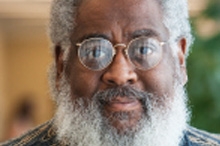
Ira Combs is being honored as a Champion of Change for helping Americans live healthier lives, reduce disease and contribute to lowering health care costs by focusing communities on public health and prevention.
It seems that everywhere I go, when I tell people that I work in Omaha, Nebraska, their initial reaction is: “I didn’t know there were any black people in Nebraska.” This response is indicative of why it feels so good to be selected as a Public Health Champion for Change: we need people who believe in active and audacious community and public health work wherever it is needed.
I have been a community nurse for more than two decades and currently serve as Community Liaison Nurse Coordinator at the University of Nebraska Medical Center.
I also am the founding director of North Omaha Area Health (NOAH), an agency that addresses the needs of the underserved in North Omaha. With a handful of dedicated community volunteers and grassroots programs, we have worked hard to meet the public health needs of our community.
My work has an emphasis on inspiring young African-Americans to become involved in public health. This includes the creation of a youth mentoring program called “CPR-N-Da-Hood,” which teaches young people CPR, then allows them to teach others through a peer education component I also created Youth Expressions of Health (YEOH), a program that has reached hundreds of young people in the past 12 years. 10 years ago, we also started a Youth Summer Internship Employment Program that has assisted more than 45 minority and underserved young people prepare for and start college with a focus on entering a health care field.
I am also the founding publisher and editor of the NOAH health newsletter, started 15 years ago, which provides health information and educational services to the underserved in Omaha. NOAH sponsors and maintains websites and social media networks that provide information about healthy living and health screening clinics. We also created a local show revolving around a character called Dr. Jesse and his friend, Prevention Man -- both aimed at teaching healthy practices and tips to children and teens.
The quote from the Bible, “For everyone to whom much is given, from them much will be required” is how I live my life and apply my skill set, helping those who need help the most. In that same vein I tell youth and families alike, when you have information, a skill, a talent it’s incumbent upon you to share it with the community because many times, unless we help those in our community the help may never come.
Ira Combs, serves as Community Liaison Nurse Coordinator at the University of Nebraska Medical Center and is the founding director of North Omaha Area Health (NOAH), an agency that addresses the needs of the underserved in Omaha, Nebraska.
Learn more about Health Care
- &lsaquo previous
- …
- 42
- 43
- 44
- 45
- 46
- 47
- 48
- 49
- 50
- …
- next &rsaquo
White House Blogs
- The White House Blog
- Middle Class Task Force
- Council of Economic Advisers
- Council on Environmental Quality
- Council on Women and Girls
- Office of Intergovernmental Affairs
- Office of Management and Budget
- Office of Public Engagement
- Office of Science & Tech Policy
- Office of Urban Affairs
- Open Government
- Faith and Neighborhood Partnerships
- Social Innovation and Civic Participation
- US Trade Representative
- Office National Drug Control Policy
categories
- AIDS Policy
- Alaska
- Blueprint for an America Built to Last
- Budget
- Civil Rights
- Defense
- Disabilities
- Economy
- Education
- Energy and Environment
- Equal Pay
- Ethics
- Faith Based
- Fiscal Responsibility
- Foreign Policy
- Grab Bag
- Health Care
- Homeland Security
- Immigration
- Innovation Fellows
- Inside the White House
- Middle Class Security
- Open Government
- Poverty
- Rural
- Seniors and Social Security
- Service
- Social Innovation
- State of the Union
- Taxes
- Technology
- Urban Policy
- Veterans
- Violence Prevention
- White House Internships
- Women
- Working Families
- Additional Issues

